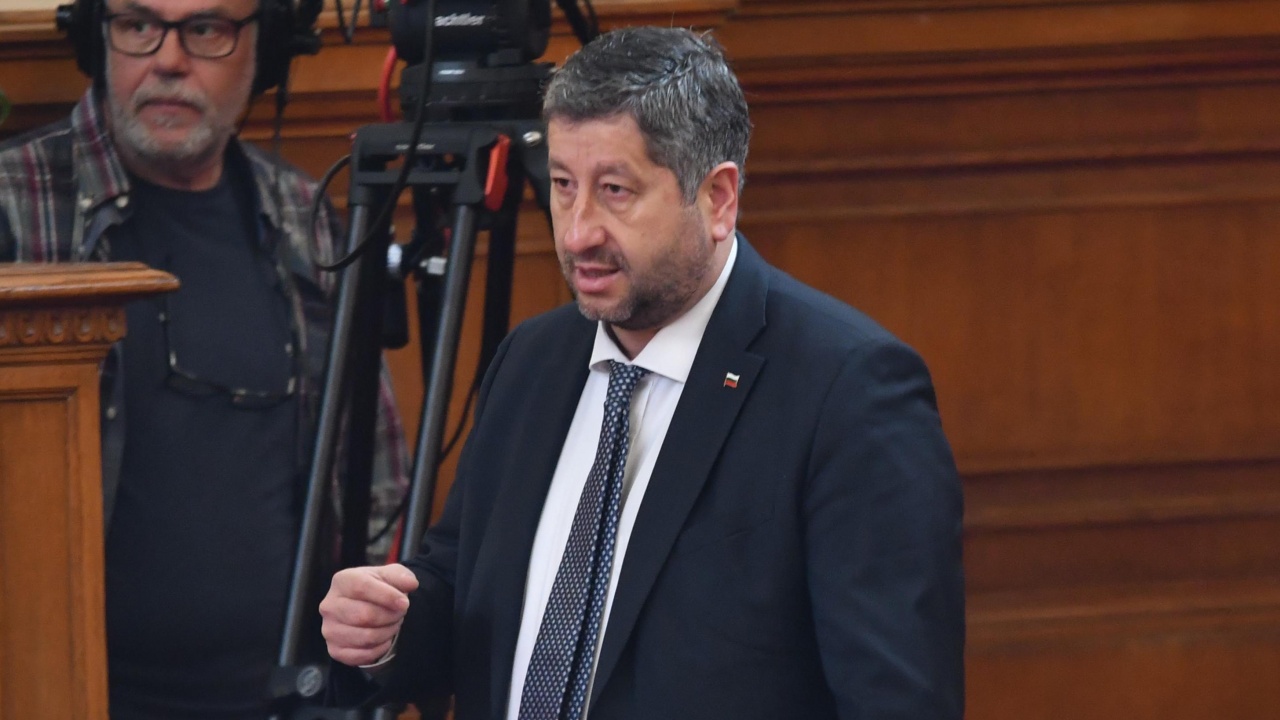"The task of this parliament is to restart the parliamentary republic," the co-chair of Democratic Bulgaria told Deutsche Welle. "We really need to sit at a table with the widest possible represented layers of Bulgarian society through the parties represented in parliament," he added.
Following is the entire interview:
Mr. Ivanov, will there be a constitutional reform?
Mr. Ivanov: There must be.
Q: What exactly are you going to change in the Constitution?
Hristo Ivanov: There is a minimum consensus in two directions. The first is the restructuring of the Supreme Judicial Council so as to ensure, on the one hand, the structural independence of the Bulgarian court in line with European standards. On the other - to reformat the personnel body that manages the prosecution so as to ensure effective accountability to the public for the functioning of this institution.
The second position is the abolition of the function of the Attorney General as a center of power. Depending on how our consensus is implemented, this position may be removed entirely or deprived as much as possible of all those powers and hierarchical functioning that gave rise to the current system, in which the Prosecutor General concentrates in himself a number of formal and informal levers of influence that have turned him into a parapolitical player.
DW: Other defects of the Constitution that urgently need repair?
Mr. Ivanov: There are two more topics. The first is the introduction of the direct constitutional complaint, and the second is related to the discussion about the possibilities at the constitutional level to rethink the model of caretaker governments so that in the future such a quasi-presidential regime is not allowed.
DW: Does this include any changes in the powers of the president with regard to the secret service?
Hristo Ivanov: This is decided at the legislative level, not at the constitutional level. But in your question lies the circumstance that we regard constitutional reform only as the tip of the iceberg of all those measures that must be taken for the restart of the parliamentary republic. We must understand that we are currently politically in a crisis of the parliamentary republic. This crisis began because of the high levels of corruption, which caused great public turmoil. It expressed itself in political division and blockage and thus led to presidential governments in a model not actually provided for in the Constitution. So, in order to solve the political crisis, we must eliminate the deficits in the political model of governance of the parliamentary republic.
DW: Is this your answer to all those supporters who are dissatisfied and bitter with the decision to sit at the same table with GERB and Boyko Borisov?
Hristo Ivanov: We need to implement a comprehensive program of measures to restore the institutions of the parliamentary republic, to restart them. Currently, they are all in crisis: the legislative, executive and judicial branches. In crisis are the services, in crisis are the regulators. And in fact, the task of this parliament - provided an executive is appointed - is to use this time to restart all these elements of the parliamentary republic. That is, to make the constitutional reform as a supreme manifestation, and at the same time to carry out a series of other reforms related to both the status of the offices and party funding.
The Electoral Code should also be revised so that we have a consensus on how we will vote in Bulgaria in order to have confidence in the electoral process. Anti-corruption legislation should be reviewed, the status of regulators should be reviewed and supplemented so as to ensure high integrity and professionalism of the teams.
All that I am listing is a de facto mini political transition, an institutional transition aimed at restarting and modernizing Bulgaria in order to clear from corruption the model of the parliamentary republic that we have. Without this, we cannot solve the political problem. This necessitates the search for an opportunity to talk with a wide perimeter of political forces, so that this effort integrates broad social strata. In practice, it is about renegotiation of key parameters of the social contract in Bulgaria.
DW: For that purpose, you had to sit down with the DPS at the negotiating table, right? Many of your supporters are unhappy that you are negotiating with a man like Delyan Peevski, over whom a lot of doubts hang.
Hristo Ivanov: To this end, for what I describe as a program for restarting the parliamentary republic and renegotiating the social and political contract in Bulgaria, we really need to sit at a table with the widest possible represented layers of Bulgarian society through the parties represented in parliament. It is not just an arithmetic problem of collecting votes, without which this cannot happen. No, it's about the sustainability of our efforts. Let me stress again: there is a transition going on here at the moment, which requires a great effort.
DW: With all the parties represented in parliament, right?
Hristo Ivanov: We from "Democratic Bulgaria" have always said that for the restart of parliamentary democracy in Bulgaria. We will talk to all political parties, except Vazrazhdane, which are clearly anti-democratic formation and with their rhetoric exclude themselves from this effort.
Hristo Ivanov: If the judicial reform is the right one, it does not matter with whose votes
Hristo Ivanov
